Published Sep 21, 2016
Catching Up with Alexander Siddig, Part 2
Catching Up with Alexander Siddig, Part 2
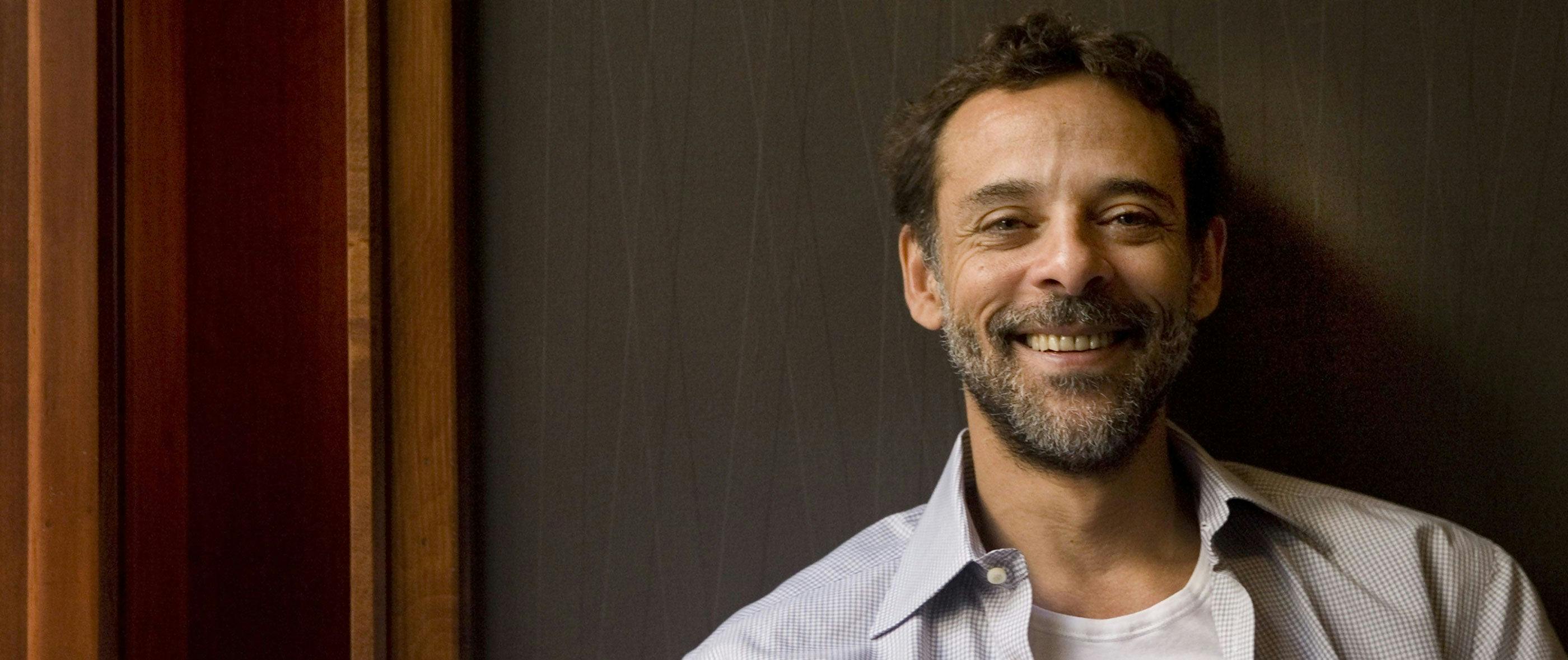
That blur you saw may very well have been Alexander Siddig zipping from one project to the next. Really. Siddig, who was known as Siddig El Fadil for much of his run as Dr. Julian Bashir on Star Trek: Deep Space Nine, is everywhere. He died a horrendous death as Doran Martell on Game of Thrones, co-stars on Peaky Blinders and just wrapped production on The Kennedys: After Camelot, a miniseries set to air next year. He even co-starred in a series pilot, Recon, that sounded fascinating, but failed to receive a pickup. And, yes, Siddig occasionally finds time in his schedule to appear at a Star Trek convention. In fact, he’s set to touch down in Birmingham, England, next month for Destination Star Trek Europe, which will be held October 7-9 at the NEC Birmingham. StarTrek.com recently chatted with Siddig about his current projects, DS9 past and appreciation for fans and conventions. Below is part two of our conversation; click HERE to read part one.
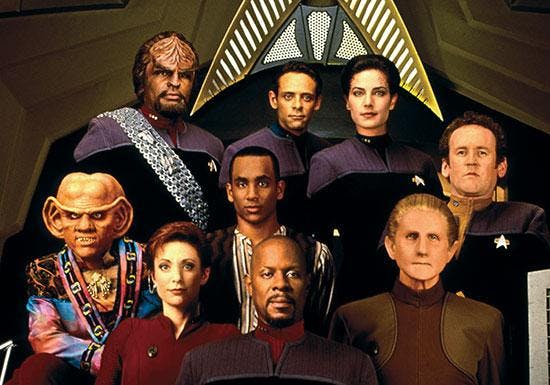
Post-Deep Space Nine, you have enjoyed a remarkably productive career. Obviously, a lot of it is earned and…
Luck is the right word.
We’ve heard Trek actors say they were typecast. You have done series after series and worked on big movies. How satisfied are you with life post-Star Trek? And how fearful were you when you wrapped DS9 that you would not be in this position as we speak?
Well, I do remember telling someone, and it may have been you, while we were filming Deep Space Nine, in the last couple of years when the writing was on the wall. Someone said, “Very few actors from Star Trek carry on working.” I remember saying that it’s up to me, that everyone can be typecast, but you’ve just got to go out there and show that you’ve got a store with more variety in it than people expect. The lucky thing about it, I think in retrospect, was that I wasn’t really playing an Arab, per se, on Deep Space Nine. He had a kind of vaguely Eastern heritage, but no one really put their finger on anything. He could have been Pakistani, he could have been Indian, he could have been half of those. He could have been Arabic. No one was quite sure. The name was Arabic, but no one really knows the genealogy of names, or etymology of names. So no one really thought of me as an Arab actor, and I got a chance to really be an Arab actor when I left, because obviously horrible things happened in 9/11, and that was just a few years after the show wound to a close.
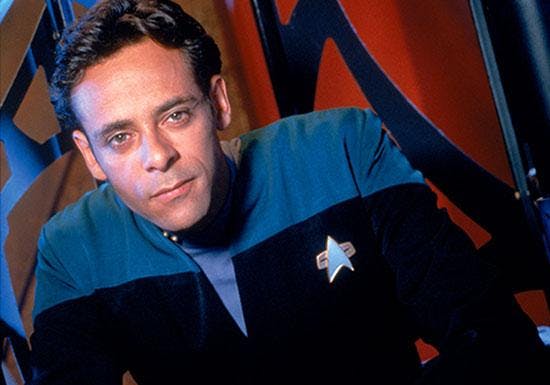
The world of entertainment looked around, and they said, “Well we just don’t have many Arab actors who anyone knows apart from Omar Sharif.” So I got work, because producers wanted a familiar-ish face on the screen. There were a couple of jobs I didn’t get because of the fact that I had been on Star Trek, but that was because producers thought Star Trek was corny, and some people were like that back in those days. Nowadays everything is reversed, and nerdy things are hip, and all that macho bulls--it is not hip anymore. So I was extremely lucky; it really was luck. And then I kind of started to forge a career as basically a character actor who did some leads every now and then, which is baffling, but wonderful. So I’ve been doing a really versatile set of roles, from really wildly different things, but different audiences. I’ve spread myself so thin, but there’s not really one demographic that hasn’t seen, or been in the position, to see something that I’ve done, for which I’m really proud and feeling really lucky. I feel really blessed.
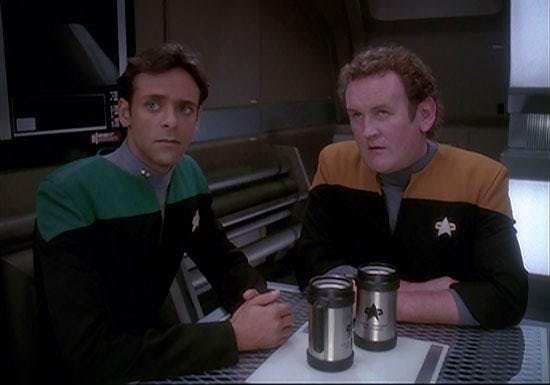
Let’s switch to DS9 and Dr. Bashir. Looking back, what were some of the elements of the character that you most enjoyed exploring?
I think the thing that I was most anxious to impress upon the producers and the public at large was that this was a real boy, this was a real novice adult, and my being in L.A. at that time — he was, in a funny way, an anti-L.A. character. I was looking around L.A., I was going to certain parties. I was never good at parties, even before I went to L.A., and I certainly wasn’t good at them when I went to L.A., but I went to several, because I was young, and it was a crew, and you just float around and do stuff to keep things amusing. Although a lot of these youngsters who I was around, the young cast members from other hit shows, whether it was 90210 or Melrose Place or the beginning of ER at the time, and there was a group of actors who were floating around. I wasn’t impressed by what was happening to them. I thought there was a false projection of importance, and richness. L.A. is very dangerous in that way, because there is an enormous pressure to be wealthy, and to show your wealth. If you don’t look wealthy, then people don’t somehow respect you. You can’t just have a talent, a unique talent, you’ve got to have wealth to prove that your talent is successful, it is marketable, it is usable.
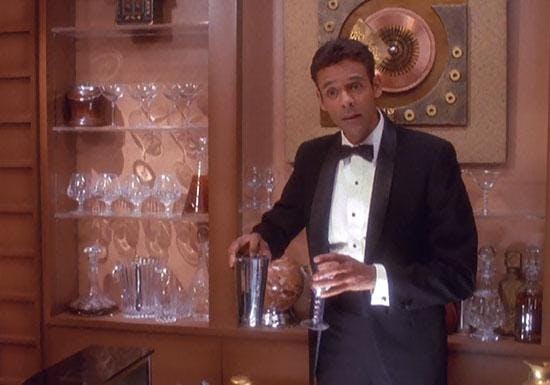
So… it’s not a town for poets.
It’s a town for beautiful young things, who have translated that beauty into wealth. And there’s something kind of sickening about that, and demoralizing about what the world wants to see, because you don’t just want to see people like that are the only people that do well. So Bashir was a kind of reflection of my idea of what that was, which is “Please don’t be that kind of person. Please be just a normal person who may seem to have the world at his feet, but keeps tripping up as he walks into a room, keeps having trouble.” And when the writers started writing shows where he made huge errors as a doctor and killed lots of people, that was so anti-heroic, and so wrong for television at the time, which then was all self-congratulatory, self-preening and vain. You look at Melrose Place or 90210, these were white people’s problems those kids went through. Baywatch was on, too. That was another thing that was happening at that time. I think maybe just coming to an end, but nevertheless, it was the celebration of beautiful mediocrity that I really didn’t enjoy about it. That was basically the fashion at the time in L.A. Thank goodness the world has changed a lot since.
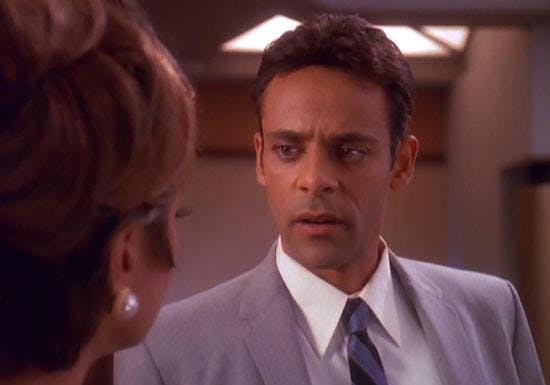
I was kicking back against it, and Bashir was actually really unpopular at the beginning because audiences just didn’t know what to make of him. This was not a kid who was beautiful and knew it, and strutted his stuff, and picked up all the girls. He just wasn’t that guy, but that was the fashion. So we had a few difficult years at the beginning, and I remember Rick (Berman), bless his cotton socks, would defend me to the studio for the first two seasons because they were desperate to fire me. And he said, “No, over my dead body. I picked this guy, I’m going to stick with this guy.” And over time, people changed their minds about Bashir, I think. A lot of people, you know, probably not the Trump supporters, which there were those in those days… There is a demographic that would never like someone like Bashir. He’s just not manly enough. But a lot of other people really loved him, really liked what he did. And a lot more humans, fragile humans, that exist everywhere, really identified with him. I still get letters of thanks from people who had a slightly tougher time in life than the ideal American Dream unraveling, which is sort of that myth. People who didn’t see America that way, didn’t feel their lives follow that path. So I got those people.
A lot of gay guys, young gay guys who were clearly vulnerable at that time, because AIDS was sort of at its apotheosis at that time, so they were not comfortable in their own skin. People who weren’t comfortable in their own skin, people who didn’t feel like the quarterback on the team, or the cheerleader, they were the people that really liked Bashir. And since then, obviously, I think society has changed. I think that Deep Space Nine has become more relevant, weirdly, in the years that have ensued, and Bashir has become more accepted.
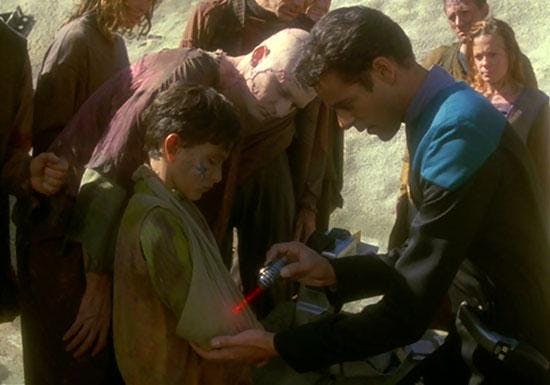
If we made you sit and watch three episodes of DS9 with us, which three would you pick? And why?
Really good question. Really difficult to answer because I never remembered the episodes when they came out, and I never watched the show. So elements of this might be influenced by what fans have told me over the years they really liked, and I’m like, “OK, that’s the one I liked too.” I think from a historical point of view, there is one episode that stands out that has nothing particular to do with Deep Space Nine, but it was such an unusual, such a beautiful homage, and that’s “Trials and Tribble-ations.” That has to be on that list because it’s just such a great idea. I think “Our Man Bashir” was probably one of the most important in terms of changing attitudes towards Bashir. I think that was probably one of the most-influential episodes. I don’t know if it’s one of the best, but it is certainly super-influential. I remember opinions began to change after that episode. So that would probably be an important one, historically. And the third episode would probably be “The Quickening.” “Far Beyond the Stars” is wonderful, too. Like I do with rock bands, I change my mind about what my favorite is every couple of weeks, but I just like the premise of “The Quickening.” It’s not on everybody’s top five list, but it’s one of those episodes I think is really important.
Destination Star Trek Europe will be held October 7-9 at the NEC Birmingham. Go to www.destinationstartrek.com for details.

